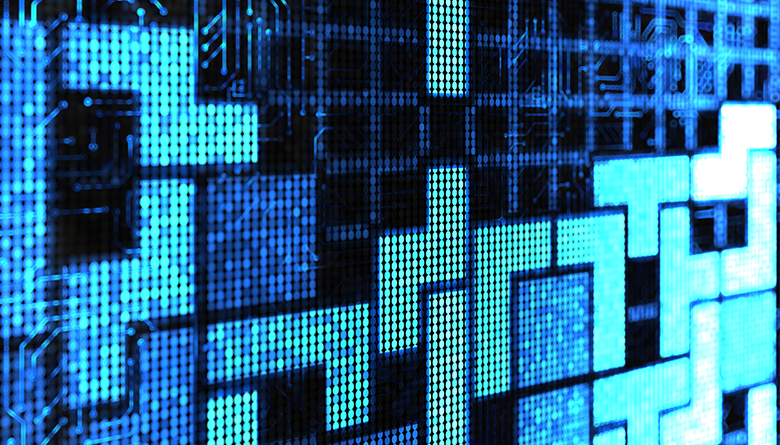By Dana Yamashita
Last year, Tetris — an early computer game named from the combination of the words tetromino, a geometric shape composed of four squares, and tennis — celebrated its 35th anniversary. Early generations remember playing the game on their Nintendo Game Boy, while current generations battle the game on social media.
Research over the years has shown that playing Tetris can help the brain operate more efficiently, perhaps help treat people with post-traumatic stress disorder, or even help you lose weight (apparently playing for just three minutes may help reduce cravings).
Wayne Gray, a professor of cognitive science, and his team are gathering data — keystrokes and shape rotations —to look at how people learn and gain expertise while playing. “It’s really a complex cognitive skill, lots of adaptation,” said Gray. “Understanding the parts of this expertise, and how those parts are glued together, will help guide our understanding of expertise in other types of dynamic task performance.”
The researchers are not studying the game itself as much as they are studying the players’ minds in how they learn, react to changes in the interface, and work as a team.
For the past three years, the team has traveled to Portland, Oregon, to study professional Tetris players at the Classic Tetris World Championship (CTWC). This year is a whole new game, so to speak, as thanks to the COVID-19 pandemic, the event will be held online. But Gray is hopeful that won’t impact significantly on their ability to collect data.
“We now have the ability to collect millisecond-accurate Tetris data using the remote software version for our Meta-TWO Tetris. We are also working on a remote version of our Cognitive Task Battery (CTB) on which we hope to run many of the CTWC elite players,” said Gray.
This work is being supported by the Office of Naval Research. The military is interested, Gray said, in how individuals and teams learn and perfect technical tasks.
“We don’t expect there to be a whole lot the Tetris players are doing that would transfer to Navy tasks, but we do hope the methods we’re bringing to study would be a model for how to proceed on tasks which the Navy does care about,” Gray said.




